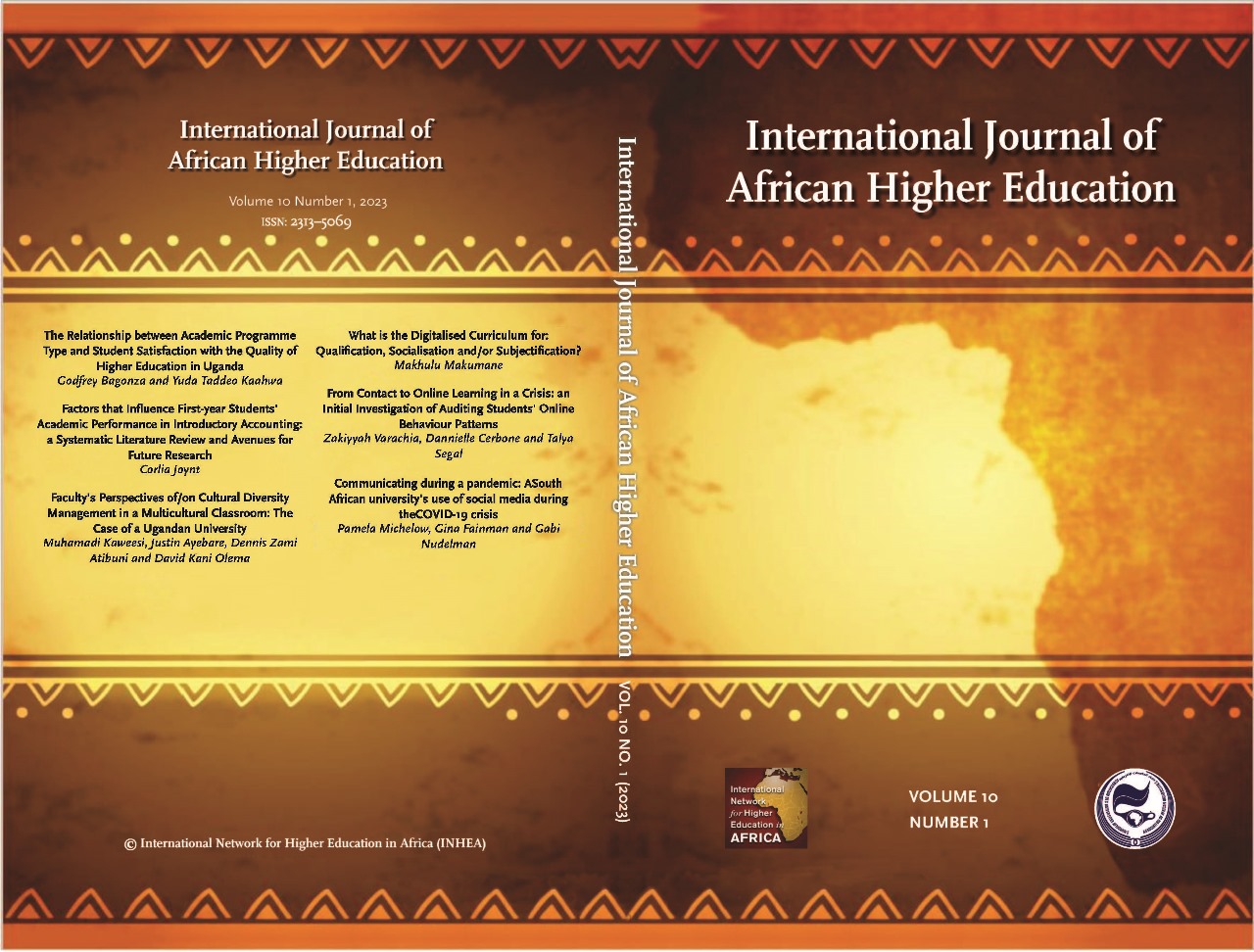What is the Digitalised Curriculum for?
Qualification, Socialisation and/or Subjectification
DOI:
https://doi.org/10.6017/ijahe.v10i1.17189Abstract
The emergence of the deadly corona virus, popularly known as COVID-19, caused a hasty and ill-prepared paradigm shift in higher education institutions. Formerly reliant on the face-to-face mode of teaching and learning, the need for physical distancing recommended by the World Health Organization forced them to adopt a digitalised curriculum. This article exploreswhether the digitalised curriculum adopted by a higher education institution in Lesotho was for qualification, socialisation and/ or subjectification. In other words, it investigates which propositions are influenced by the digitalised curriculum. Purposive sampling was used to select five studies conducted in Lesotho during/post the COVID-19 pandemic. The tree three rings theory was used to frame the study, with thematic analysis through critical discourse analysis employed to analyse the data. The findings suggest that, to some extent, the use of a learning management system favours qualification at the expense of both socialisation and subjectification. In addition, the digital divide was glaringly evident in the adoption of online learning. Formal incorporation of social media sites is recommended to enable students to socialise with prescribed content and to utilise their unique experiences with digital technologies to achieve their prescribed goals.
Downloads
Published
How to Cite
Issue
Section
License
Copyright (c) 2023 Makhulu Makumane

This work is licensed under a Creative Commons Attribution-NonCommercial-NoDerivatives 4.0 International License.

